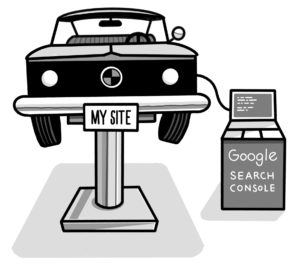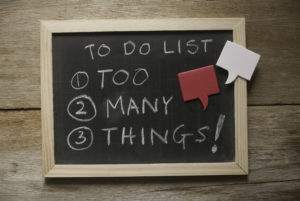
When we believe something to be true, our gut instinct is to find ways to confirm its validity. This is called confirmation bias. What you believe is what you attract. Left unchecked, it’s a dangerous psychological weapon, and for entrepreneurs, it’s an easy way to fail. What follows are four statements that lend themselves to confirmation bias, along with how to reframe and leverage each in a productive way.
You don’t have to be your past
Of course, you can be; or, rather, you can embrace your past. Just know that you don’t have to be.
It always interests me to learn about a successful entrepreneur who grew up with little to nothing. For me, it was a similar tale. I come from humble roots — a single mother, two grandparents who served as pseudo-parents, both while grinding it out in blue collar jobs. Truthfully, they had entrepreneurial spirit. That mindset of go, go, go.
I look back on my childhood as a positive experience. Sure, I never had much money, but that means I also never had any handouts. I never expected anything from anyone. I learned early on in life that if I was going to be successful, it would come down to my own doing.
In fact, this is probably what led to my childhood, teenage, and early adulthood years being filled with countless “ventures.” First there were the quasi-traditional money makers. You know, selling candy at school (the ultimate childhood hustle), waking up before the sun to run a daily paper route.
Then, as I grew older, the more “unique” endeavors, like being hired as a “party motivator” at various gigs and starting my own DJ business. Or commandeering $17/hr to stock and deliver beer before I was even legally allowed to drink.
None of this is to pat myself on the back for showcasing an early entrepreneurial drive. Instead, I think it’s an example of confirmation bias gone right, as opposed to horribly wrong. Anyone who struggles in their childhood can very easily (through no fault of their own) become prone to defeatism. “I haven’t had much in my life, so I am not much.”
Accept that thought, and confirmation bias comes out to play. You subconsciously look for anything and everything that will confirm this belief. I was lucky to have enough optimism to reframe my beliefs. The way I was going to be successful was by grinding it out. After accepting that, I just had to find opportunities to grind. I looked to examples of successful people who had an admirable work ethic, and focused on my successful future.
If you believe you’re not creative, the world will agree
This is one of my favorites, because it’s one of the strongest examples of confirmation bias at work. Plus, creativity is such an elusive term. It feels like we still tend to equate creativity with movies, books, paintings, songs…and nothing else.
The arts are certainly fields that live off creativity, but the term itself is much more than end-product. Creativity is a mindset, a process-based way of thinking, and as an entrepreneur — no matter where you are in your journey — you must see yourself as a creative individual.
That’s half of what being an entrepreneur is about! You’re constantly looking for new opportunities, creative solutions to existing problems, ways to do things differently. But again, if you believe you’re not creative, the world’s going to support that belief in an instant.
You’ll quickly see other entrepreneurs coming up with ideas that you’ll be convinced are way better than yours. Anything that supports your lack of creativity will be sucked up by your brain; and, conversely, anything that might suggest your lack of creativity is hogwash will be rejected. After all, we’re talking about confirmation bias — only information that confirms your belief, however wrong it might be.
There’s a fine line between confidence and hubris
One of the more difficult aspects of being an entrepreneur is learning when and when not to leap. Part of this comes down to understanding the razor-thin line between confidence and hubris. And, in keeping with our theme, confidence and hubris can stem from confirmation bias.
Tell yourself you’re ready to act, but in a pragmatic way, then believe it and move forward. However, feed your ego with those wonderfully sugar-filled statements like “I’m the best,” “I can’t fail,” “No one can do what I do,” “I, I, I, I, I,” and you might find yourself in the land of uncontrolled hubris.
It’s tricky to avoid doubt, believe in yourself, and simultaneously not overstep. You don’t want to get into your own head, but you also don’t want to run full-steam ahead off the mountaintop with no parachute. Factor in family, and the decision making process becomes even harder.
The best thing any entrepreneur can do for themself is to recognize the line. Walking it takes practice. Finding balance takes experience. But acknowledging that there even is a balance between confident ventures and overconfident mishaps is how we prevent the pitfalls of confirmation bias. It’s how we keep ourselves from drowning in defeatism or outflying Icarus and paying the price.
Actionable goals create movement
This brings us to the ultimate way to leverage confirmation bias and achieve your vision: action. Better yet, actionable goals. If you keep yourself organized and chart out a step-by-step path to accomplishing what you want to accomplish, you’re better equipped to use confirmation bias to your advantage.
Since confirmation bias is a product of your belief system, I’ve found that having an organized path to success is an easy way to use it to your benefit. “See” the path so that you can “believe” in the path. What’s more, having an action plan helps mitigate doubt and overconfidence. Actionable and organized goals instill faith in the process, while also painting a clear picture of where you are and where you need to get to.
There isn’t a single moment in any entrepreneurial venture where you will or won’t face confirmation bias. It tends to show up along the way. However, if you understand what it is, as well as how you can leverage it to support optimistic and mindful thinking, you’ll be better equipped to handle the challenges that appear on your journey.




